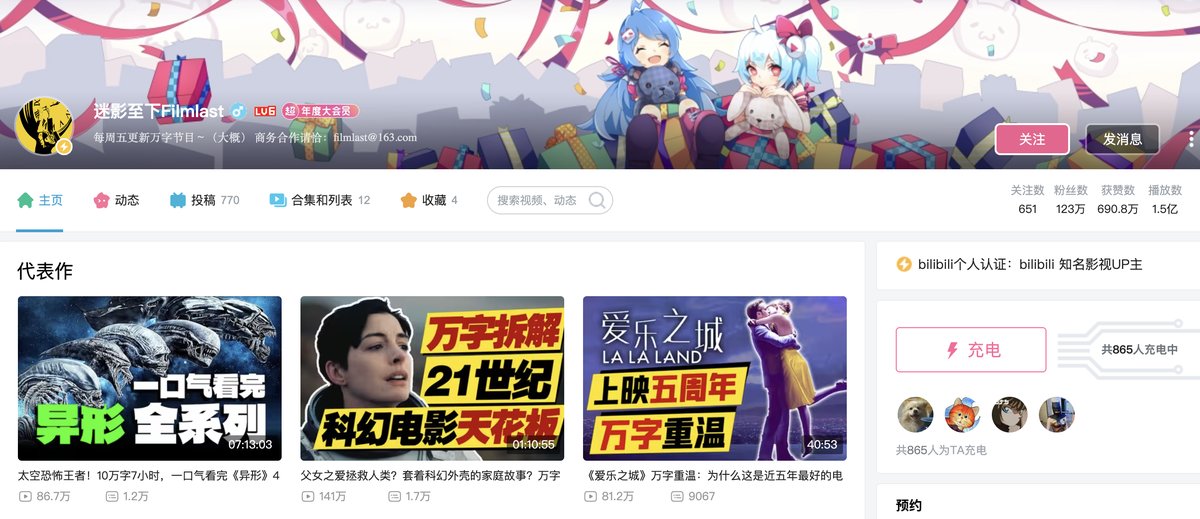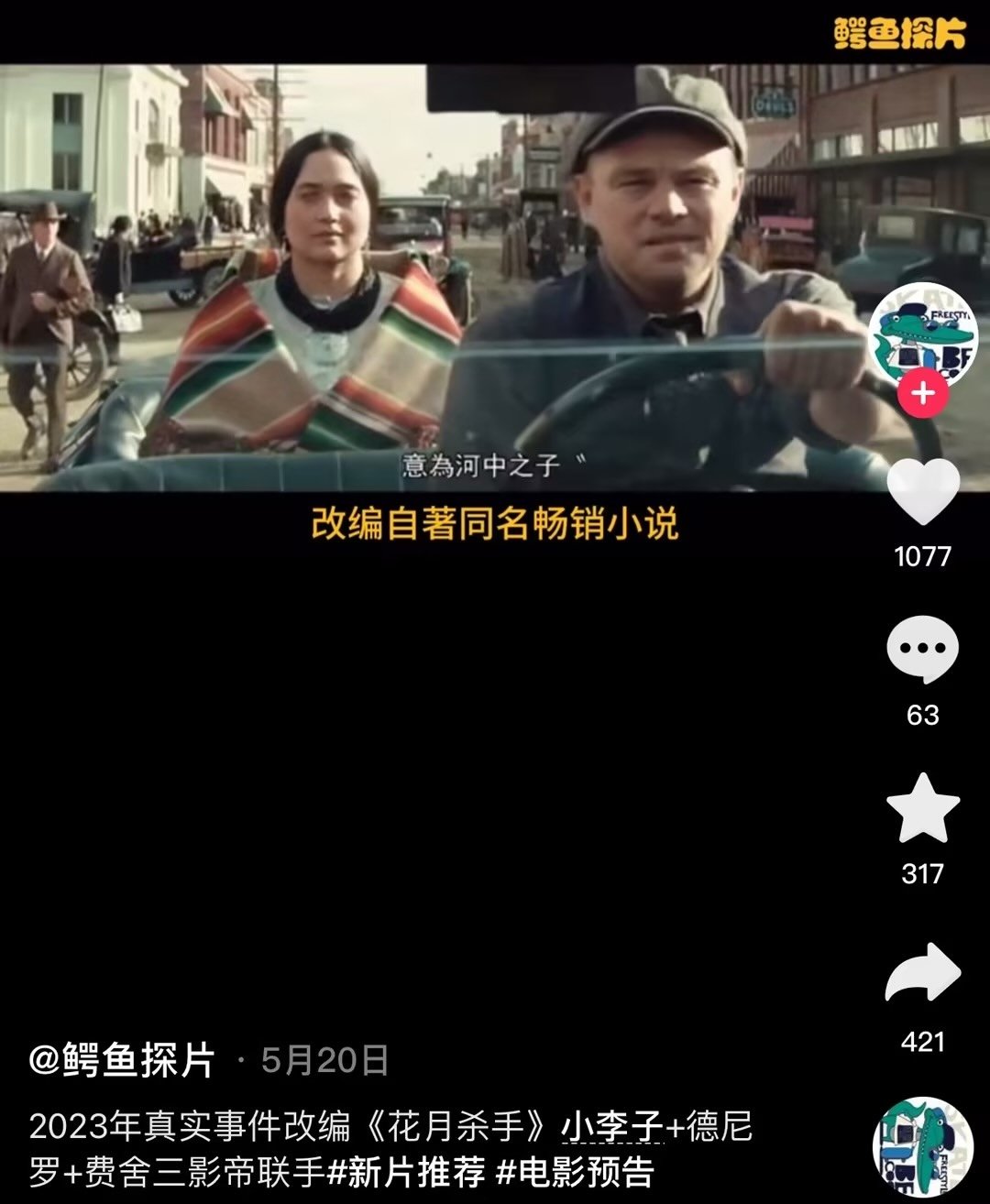From short summaries to full contextual breakdowns, movie recap videos are diverse, controversial, and wildly popular
In November 2022, Liu Ziwen missed out on a business trip and a hefty bonus because she hadn’t watched enough TV. The 29-year-old had seen her colleagues meeting with her manager during lunch breaks in their office to discuss House of the Dragon over the past weeks, but “I hadn’t seen it, so I just finished my meal [alone] and got back to work,” Liu tells TWOC.
When the manager at the translation company in Nanjing, Jiangsu province, sent a list of employees chosen for the work trip abroad in the office group chat, Liu’s name wasn’t on it. Everyone that had been meeting at lunch to discuss the HBO prequel to Game of Thrones was.
That evening, as soon as Liu got off work, she didn’t start watching all 10 roughly hour-long episodes of the show but instead searched online for summaries of House of the Dragon.
These recap videos on platforms like Bilibili, Douyin (China’s version of TikTok), and YouTube, distill TV series or movies into summaries that range in length from several minutes to around an hour long. Over clips or stills of the show, the presenter may also provide commentary. Recap videos have been around in China at least as early as 2015, but they sprung up like mushrooms during the Covid-19 pandemic.
There are thousands of recap channels online now, some with tens of millions of subscribers. One 10-minute recap of the 2017 Korean horror movie Forgotten, posted in January this year, boasts over 23 million views on Bilibili. But even now, nearly a year on since cinemas in China stopped their pandemic-related regulations, recaps only seem to be becoming more popular.
“You couldn’t go to the cinema [in China] during the pandemic and I’m the type of person who can only watch something that long in a distraction-free environment,” says Hou Kaiyue, a first-year PhD student at the University of Bristol in the UK. “I started watching recaps when the pandemic started while I was doing my master’s [in Shanghai].”
For many, recaps help save time and relieve the fear of missing out. Liu realized that she wouldn’t be able to smoothly join in on her colleagues’ conversation if she also hadn’t watched Game of Thrones, which has 73 episodes of approximately 60 minutes each. Recaps were a quick alternative.
For others, such as Hou, choosing recaps is related to fear of (and attraction to) horror movies. She says that she often watches recaps of movies full of suspense when she doesn’t “quite dare to watch the original.” A team of researchers led by Xu Hailong, associate professor of film and cultural industries at Beijing’s Capital Normal University, published a study on recap videos earlier this year. After analyzing 400 recap video samples from five popular Bilibili channels, they observed that the most popular recaps were of films that include suspense elements, such as thriller, horror, adventure, and detective movies.
Recaps of such movies usually last between 10 to 30 minutes. “They just go through the story and there isn’t much interpretation because, frankly, there isn’t much to interpret [in these movies],” says Li Siyu, a master’s student of English literature at Nanjing University.
Li started watching recaps to stay up to date on the Marvel Cinematic Universe franchise which consists of dozens of films. But the Bilibili channel he regularly watches, Filmlast (which boasts over 1.2 million subscribers), offers far more than a simple synopsis. “Before retelling the plot, they introduce the behind-the-scenes story: how the project started, who was invited to write and direct, how the actors were cast,” Li explains. Each video is about an hour long. In contrast, recaps on Douyin are often under five minutes and are usually reserved for “more eye-catching genre films with simpler plots such as small-budget horror films,” he says.
Others use these videos to get an accessible introduction to arthouse or experimental films. “I started Wong Kar-wai’s In the Mood for Love [(2000)] many times but couldn’t finish. So, I watched a recap, then went back and watched the film till the end,” Hou tells TWOC. “The film’s pace is very slow; the narrative is a bit fragmented and confusing. I wanted to first find out what the story is so that, when I watch the full film, I can focus on things like filming techniques and metaphors.” Li, meanwhile, discovered Italian neorealism and Iranian New Wave films through a Bilibili channel called MovieTalk. “They interpret and even spoil some of the plot points, but that doesn’t affect me a lot,” he says. “I still see the whole movie afterward and form my own ideas.”
Recaps of non-Chinese films and TV shows are particularly popular in China because most of them are never released here. Only a few dozen foreign films receive a license to show in domestic theaters each year, and film festivals that screen more foreign titles are mostly restricted to big cities. Cinephiles are left to use illicit streaming or download platforms online to watch movies like Martin Scorsese’s Killers of the Flower Moon (2023), and shows like Netflix’s live-action adaptation of One Piece.
“I don’t want to spend time searching for a ‘resource’ [that is, a link to pirated content] and waiting for it to finish downloading,” Li says. Instead, recap videos are often the most convenient way to learn the plot of foreign films and shows. Arguably, the first recap that became viral in China was a 2015 video titled “Watch Birdman in Three Minutes,” which garnered over 4 million views on Bilibili within a few days before being taken down. The film had won four Academy Awards that year, including Best Picture, but it wasn’t released in Chinese cinemas.
For successful recap video producers, the genre can offer high returns for relatively little effort. To make a recap video, content producers download and watch the movie or TV show, write and record a summary text, and edit it together with the footage from the movie.
The process can even be accelerated with the use of AI tools. For a 40-yuan monthly subscription on the website Dubbing Goose, for example, content creators can have the text from an existing recap video transcribed and then paraphrased and made into a voiceover that is ready to be used for a new “recycled” video. Recap channels, especially those run by a team rather than an individual, can churn out such videos on a weekly or even daily basis and thus benefit more from Bilibili’s Creation Incentive Plan that pays creators based on how many views their videos have.
But recap content creators often stray into legal gray areas when they use footage in their videos. In theory, they are not permitted to use clips from movies or TV shows without permission, though in practice this has not been strictly enforced for years.
In April 2021, however, more than 70 film companies, streaming platforms, and over 500 workers in the screen industry released a proposal for regulating alleged rampant copyright infringement by recaps and other edited videos based on films and TV shows. They proposed shifting the onus for copyright protection from individual content creators to the platforms where they publish their videos. Previously, copyright holders had to sue the recappers directly, while the new proposal called for platforms like Bilibili to have oversight and ensure the removal of “unauthorized editing, sharing, recapping, and compilating of film and television content.”
Between June and December 2021 alone, Tencent Video lodged 168 lawsuits against Douyin for copyright infringement. In one case related to 2021 web series The Worm Valley, Douyin was ordered to pay Tencent more than 32.4 million yuan in compensation—a record amount for similar cases in China. But since Bilibili and Douyin continue to profit from user-generated content and the ensuing traffic, they have so far been happy to settle lawsuits lodged by copyright holders rather than restricting recap video-makers’ freedom on their platforms.
Similarly, in most cases it has also made more financial sense for the streaming services, who own online distribution rights to films and shows, to cut deals with the video platforms than to wage protracted court battles against them. (While the Worm Valley case was a win for Tencent, most of its other cases are yet to be settled.) In July 2022 and April 2023, iQIYI and Tencent Video—two of the largest video entertainment platforms in China—announced respectively that they were cooperating with Douyin by authorizing the latter’s users to use their content library to make short videos, including recaps. From September 2022, iQIYI has even provided a list of movies and TV shows it wants promoted and Douyin has incentivized users to make derivative works based on those listed.
While that makes it easier for the thousands of recap video producers to find content for their work, it has also created fierce competition to stand out from the crowd. For example, Uncle Niu, a Bilibili channel with over 1.5 million subscribers, uses doggerel poetry in their recaps, while Teacher Liu Talks Movies narrates film plots in dialects for their nearly 5 million followers. “I consciously choose recappers based on their style of narration and speech fluency,” says Hou.
The current business arrangement appears mutual beneficial: The streaming services get free publicity from recap videos; video platforms gain revenue from recappers bringing traffic to their platforms; recappers maintain access to considerable TV and movie content without threat of copyright lawsuits. But the wider impact of recap videos on audiences and film culture remains to be explored.
As part of their study, Xu Hailong and his team concluded that by watching a recap, the viewer is guided by the host instead of the camera or other properties inherent to the medium of film. “Appreciation of art turns into a hunt for novelty,” they argued. Based on viewers’ interaction with recaps through comments under the video, they found that only 0.78 percent of viewers expressed an interest in watching the original movie after watching the recap video.
“I don’t think there’s a conflict between watching recaps and movies,” Li says, however, explaining that recaps don’t influence his desire to watch full films. “I still watch movies that are worth making time for.”
Hou, on the other hand, admits that these days she “watches recaps much more often than actual films.” For some, recaps aren’t short enough. In the comment section of recap videos on Bilibili, some users tag AI-powered bots to generate an even shorter written summary of the video.
As for Liu, she still can’t quite tell whether her colleagues watched all 10 hours of House of the Dragon or just a recap. Maybe it doesn’t matter, as long as she gets on the next business trip.
Total Recap: The Rise of Bite-Sized Cinema is a story from our issue, “Online Odyssey.” To read the entire issue, become a subscriber and receive the full magazine.















